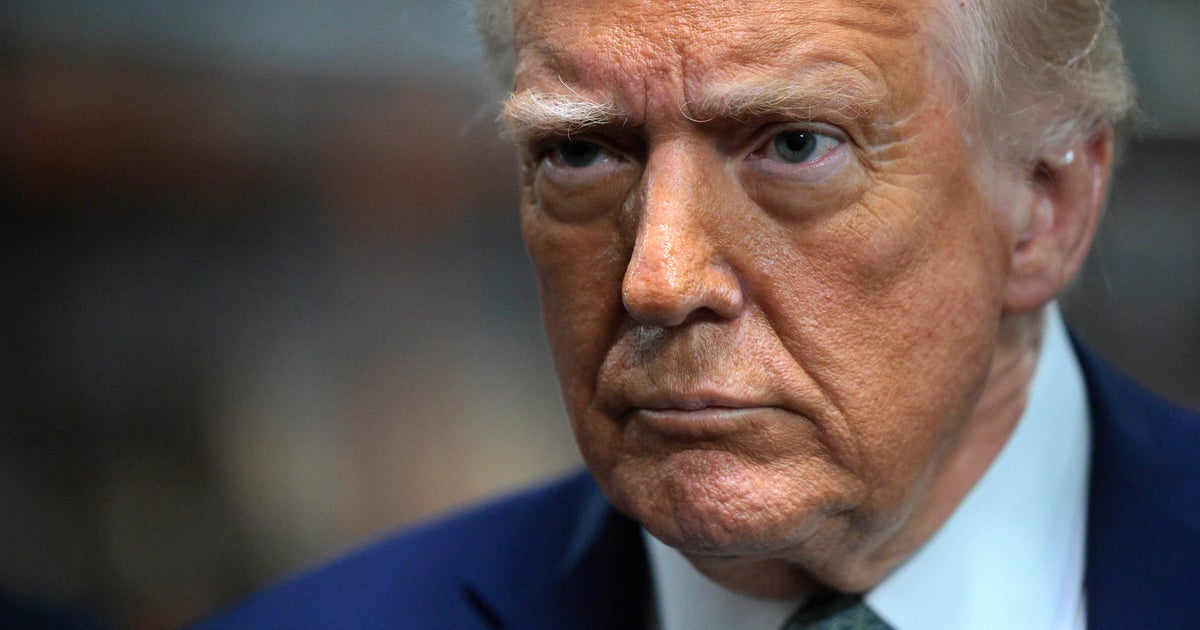President Trump on Wednesday said he will put a 25% tariff on automobiles and light trucks imported into the U.S., escalating his administration’s use of aggressive trade measures in an effort to boost domestic manufacturers.
“This will continue to spur growth like you haven’t seen before,” Mr. Trump said from the Oval Office Wednesday afternoon. “We’ll effectively be charging a 25% tariff. But if you build your car in the United States, there is no tariff.”
Mr. Trump said the new auto tariffs will take effect on April 2 and that the U.S. would start collecting the duties the following day. The president added he believes the new import duty could raise between $600 billion and $1 trillion in revenue for the U.S. over the next two years.
“This number will be used to reduce debt greatly,” Mr. Trump said. “Basically I view it as reducing taxes and reducing debt.”
White House staff secretary Will Scharf, who stood next to Mr. Trump during the announcement, offered a more conservative estimate of how much the new auto tariffs would raise, predicting roughly $100 billion in new revenue.
Mr. Trump also reiterated his goal of making interest paid on auto loans tax deductible, while noting that such a deduction would apply only to cars made in the U.S.
Tax deductions are generally only employed by high-income Americans because most taxpayers take the standard deduction, which means tax-deductible auto loans wouldn’t impact low- or middle-income households.
The latest salvo of tariffs comes after Mr. Trump earlier this month gave a one-month exemption to U.S. automakers from the round of import duties that took effect on March 4.
Because tariffs are taxes on imports that are largely passed onto U.S. consumers, they can cause households to cut back on spending and dampen economic growth, according to experts.
Shares of the Big Three U.S. automakers — Ford, General Motors and Stellantis — all sank after Mr. Trump announced the new tariffs. Tesla shares, which have slumped this year because of disappointing sales and consumer unhappiness over CEO Elon Musk’s involvement with the Trump administration, fell nearly 6% on the day and are down 33% this year.
Mr. Trump has long said that tariffs on auto imports would be a defining policy of his presidency, betting that the costs created by the taxes would lead both American and foreign automakers to relocate production to U.S. soil.
Automakers with U.S. plants still depend on Canada, Mexico and other nations for parts and finished vehicles. Because booting up manufacturing facilities would take time, in the medium term domestic auto prices would likely increase and car sales decline, experts say.
Car prices could jump
One analysis of Mr. Trump’s tariffs estimated that auto prices could rise as much as $12,200 for some models due to the new import duties, according to a report from Anderson Economic Group, a Michigan-based economic consultancy.
Targeting imported cars could strain ties with key trading U.S. partners including Canada, Japan, Mexico and South Korea, as well as Europe.
“I deeply regret the U.S. decision to impose tariffs on EU automotive exports,” Ursula von der Leyen, president of the European Commission, said in a social media post. “Tariffs are taxes — bad for businesses, worse for consumers in the U.S. and the EU. The EU will continue to seek negotiated solutions, while safeguarding its economic interests.”
About 50% of cars sold in the U.S. are manufactured within the country. Among imports, about half come from Mexico and Canada, with Japan, South Korea and Germany, also major suppliers.
Kathryn Watson and
contributed to this report.



